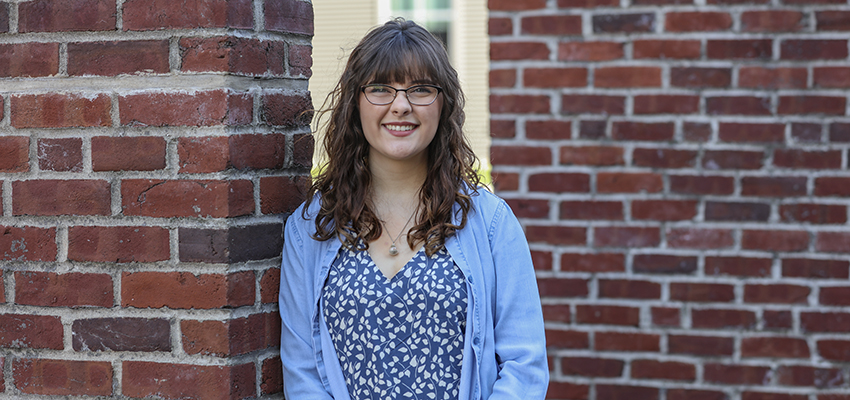
HWS News
2 October 2019 Curtis '20 Publishes Russian to English Translation
The art of translation requires far more than the simple ability to speak that language, says Alexandra Curtis ’20. A Russian-to-English scholarly article has been published that Curtis co-translated with Professor and Chief Curator of the Folklore Archive of the Russian Academy of Sciences Yelena Minyonok in Moscow. Titled “St. Sisinnius’ Legend in Folklore and Handwritten Traditions of Eurasia and Africa (Outcomes and Perspectives of Research)” the article was written originally in Russian by A.L. Toporkov.
Because different languages follow different stylistic parameters, says Curtis, “translation isn’t just a system of input to output, but rather has to be recrafted into a different code [in the new language].” Many of the decisions a translator makes may come down to nuance and personal preference—which is why there are multiple translations of writers, she says.
“A translator’s primary goal must always be to portray the text as true as possible, but how they interpret that text can greatly affect the translation,” says Curtis. “This was something that had never occurred to me before actually doing a translation.”
Curtis says that her working relationship with Minyonok was collaborative. “She would give me rough sentences to start with and I would edit them for better grammar and stylistic flow,” she says. “Dr. Minyonok and I would frequently get into discussions about the intricacies of specific words and help each other to understand the other’s language.”
Associate Professor of Russian Area Studies Kristen Welsh says it’s rare for a student to have the language skills to undertake a scholarly translation after only four years of study. “She has pushed herself to bring her Russian to the level where this kind of project is feasible,” Welsh says of the comparative literature and Russian area studies and culture dual major.
Curtis undertook the translation work as part of her 2018 study abroad experience in Moscow. As the winner of the Charles H. Salisbury Summer International Internship Stipend, she delved into Russian folklore at the A.M. Gorky Institute of World Literature at the Russian Academy of Sciences.
Curtis also spent a semester in the city of Barnaul in Siberia, where she immersed herself in Russian language studies and taught English to elementary and middle school students. She is working toward an English as a Foreign Language (TEFL) teaching certification, and hopes to return to Russia or another post-Soviet nation for further experience as an English language instructor. “Teaching English is also something I feel compelled to do,” she says.
